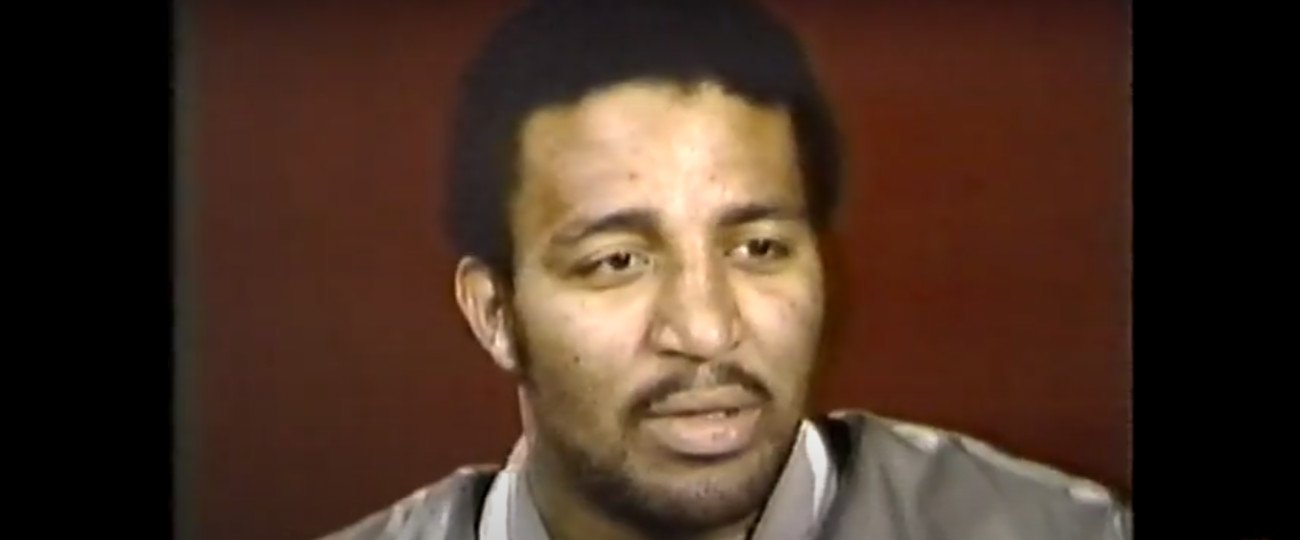Sadly, and for a number of different reasons – be it squandered talent, premature death, drugs, a loss of all ring earnings, career-ending injury – the great sport of boxing is littered with agonizingly sad tales of fine fighters and their terrible fates.
In particular, there seem to be too many sad tales involving heavyweight fighters.
The John Tate story is tough to be topped when it comes to leaving a fan/admirer feeling depressed. The Greg Page story is also a tough one to read. And Trevor Berbick is another one who met a gruesome end. And Tommy Morrison. And Bert Cooper. And so many others.
Which brings us to James “Broad-Axe” Broad.
A naturally gifted heavyweight who was blessed with heavy hands, good power, and a fine boxing brain, Broad learned how to fight whilst serving in the US army. Broad was 22 years old and set to fight for his country at the 1980 Olympics, only for President Jimmy Carter to boycott the games that year.
Broad, who had blasted Marvis Frazier inside around in the Olympic Trials, had been looked at as a good bet to bring home a medal, maybe a gold.
Broad went pro in November of 1981, and he won his first 12 fights – including a KO win over future heavyweight titlist Bonecrusher Smith (in Smith’s pro debut). But already, Broad’s waistline was raising eyebrows.
Broad’s slowly but surely increasing weight served to seriously affect his ability. Frazier won a decision over Broad in 1983, avenging his amateur loss. For his NABF title defense against Tim Witherspoon in 1985 (Broad having beaten Eddie Gregg to win the belt), Broad weighed an obscene 261 pounds. Broad was taken out in two rounds.

Broad, despite the girth, could still fight, as he showed when dropping a 12 round decision to yet another future heavyweight champ in Tony Tucker. The following year, 1987, Broad dropped a decision to Francesco Damiani, and he then lost on points against Greg Page. Broad was then KO’d by Johnny du Plooy in South Africa, and his once-promising career was effectively over. Razor Ruddock stopped Broad later in 1988, this in just one round (the stoppage looked at as premature by some). By now, Broad was scaling around 300 pounds.
Broad, who had served as Mike Tyson’s chief sparring partner, launched a comeback in 1991 – this despite the fact that he had been banned in Nevada and California for failing a neurological exam and reportedly testing positive for Hepatitis. Astonishingly, Broad was permitted to box four fights, three of which he lost. Broad retired in the summer of 1993, and then the truly gloomy stuff began.
Broad was reported as homeless in 2000, wandering the streets of Las Vegas, badly brain-damaged. Broad managed to get back to his hometown of Greensboro in North Carolina, and this is where he died. Aged just 43, Broad was all but forgotten. Broad’s final ring record reads 23-10(15).

Once a man with a big future, Broad was unable to maintain discipline, his ballooning weight dragging him down. Broad had a dream but sadly, like the men listed above, his life ended up being a nightmare.
